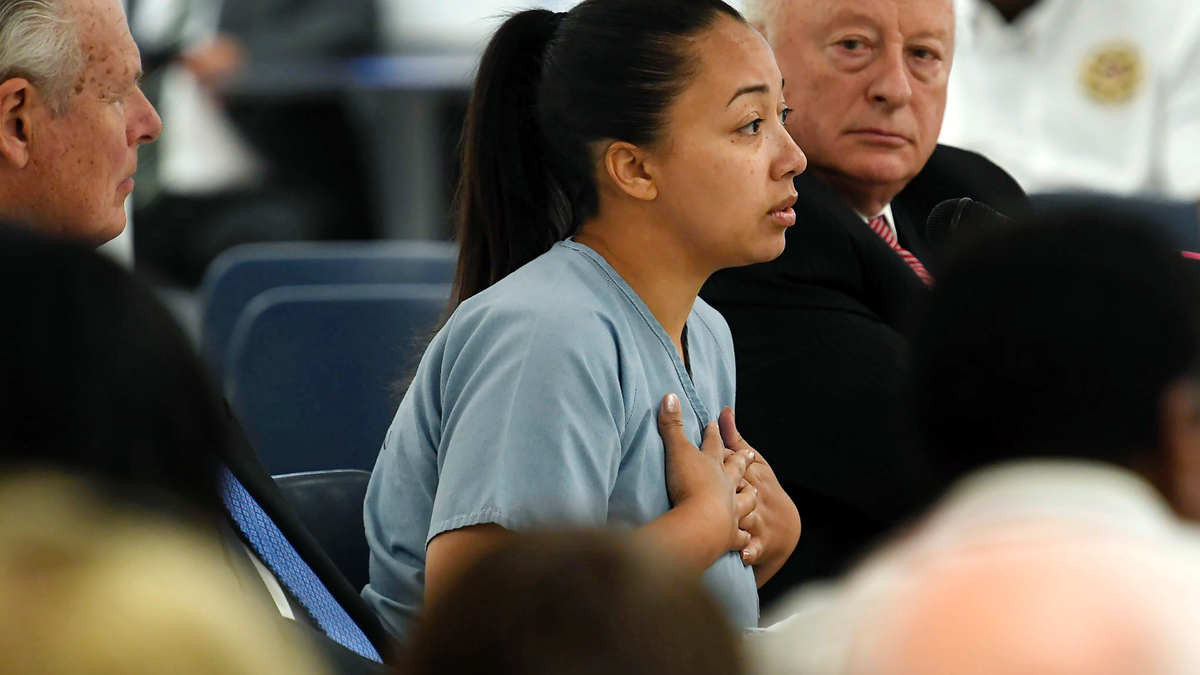
NASHVILLE, Tenn. – The fate of Cyntoia Brown, who is serving a life sentence for killing a man when she was 16 years old, is in the hands of Tennessee's governor after the state parole board split on a Wednesday clemency hearing.
Brown's lawyers asked the parole board to consider whether the now 30-year-old has turned her life around so much in prison that she deserves a break on her lengthy sentence.
The case has attracted the attention of celebrities such as Kim Kardashian and singer Rihanna, who are part of a social media campaign to get Brown released from prison. A number of organizations also have come to her defense, saying she was a sex trafficking victim who received an extremely harsh sentence — she must serve at least 51 years in prison before she can be released.
At the hearing, Brown's lawyers asked that her first-degree murder conviction for killing real estate agent Johnny Allen in 2004 be reduced to second-degree murder. Brown, who has been incarcerated for about 14 years, would have served enough time to get out of prison if that were to happen.
Two parole board members voted for clemency, two denied her bid, and two said she should serve a total of 25 years. A seventh board member was not present. The vote is non-binding, but it also gave no clear direction to Gov. Bill Haslam.
"Gov. Haslam and his legal counsel will thoroughly review Ms. Brown's application and the Board of Parole's recommendation after receiving it," Jennifer Donnals, a spokeswoman for the governor, wrote in an email.
A federal appeals court is set to hear oral arguments in Brown's case next month to determine whether the sentence she received as a juvenile is so long it's unconstitutional.
A number of unlikely people and organizations pleaded for mercy during the hearing, saying Brown was a brilliant woman who had been educated in prison and had become a mentor to troubled girls and young women. A former federal prosecutor, along with a lawyer in the state attorney general's office who had once worked to fight one of Brown's appeals, said she had turned her life around. Two representatives from Tennessee-based victims' rights organizations, who normally argue for harsher sentences, came to Brown's defense.
"We're here with a story of transformation," Charles W. Bone, one of Brown's lawyers, told the board.
Brown admitted that she killed the 43-year-old Allen and said she was leading a bad life when she was younger.
"And when I was 16 years old, I did a very horrible thing, and that has been with me for a very long time," she said.
Brown has maintained that she killed Allen because he kept reaching under the bed and she thought he was going for a weapon and was going to shoot her. Afterward, she took two of Allen's rifles, stole $172 from him and fled in his truck.
Brown's supporters have said that at the time she was with a violent pimp who beat her, forced her to work the streets and allowed his friends to rape her.
But during the clemency hearing, a Nashville police detective said the crime scene and his investigation told a different story. He said Allen was found with his hands clasped under him on the bed.
"He was asleep, basically," Detective Charles Robinson said. He said that gunshot residue from the scene showed Allen had been shot in the back of the head at close range and that Brown brought a loaded gun so she could rob the man.
Robinson also said there was no proof that Brown had been trafficked since she was 12, which had come out at the clemency hearing. She denied being a prostitute and had only known the man she later called her pimp for about a month, Robinson said of his investigation.
A friend of Allen's told the board that there was no proof that he paid for sexual services from the girl.
"He didn't deserve to die," Brown said afterward. "I was wrong. I was wrong. And I can't fix it."









































